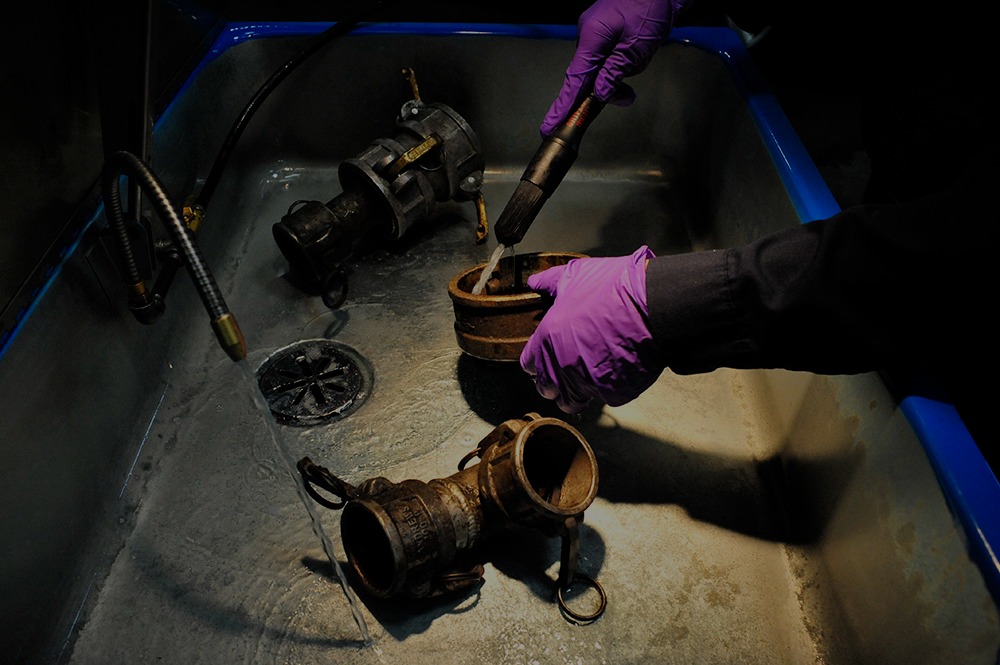
Heat Pump Installation vs. Traditional Heating: Which is Right for You?
- Dec 31, 2024
- | 58
As energy costs continue to rise and environmental consciousness grows, homeowners face a pivotal decision in their heating choices. The landscape of home heating has evolved dramatically over the past decade, with heat pump installation emerging as a compelling alternative to conventional heating methods. While traditional furnaces and boilers have faithfully warmed homes for generations, modern heat pumps represent a technological leap that's reshaping how we think about indoor climate control.
The choice between these systems extends far beyond simple temperature control. It touches on energy independence, environmental impact, and long-term financial planning. Each system brings its own set of advantages to the table – traditional heating offers the familiar comfort of consistent warmth that many have grown up with, while heat pumps introduce innovative technology that can both heat and cool your home while potentially reducing your carbon footprint.
The Fundamentals
Traditional heating systems like furnaces and boilers have been warming homes for generations. They work much like a campfire inside a metal box – burning fuel or using electricity to create heat directly. These systems are familiar, and reliable, and have kept countless families cozy through winter storms and cold snaps.
Heat pump installation brings a different approach to home heating. Instead of creating heat, these systems work like heat shepherds, gathering warmth from the outside air (even in cold weather) and moving it indoors. Think of it as working like your refrigerator, but in reverse – while your fridge moves heat out to keep things cool, a heat pump brings heat in to keep things warm.
- Climate Adaptability and Performance: Today's heat pumps can handle most weather conditions with impressive grace. While older models struggled in extreme cold, modern units keep homes comfortable even during harsh winters. Traditional systems remain steady performers regardless of outside temperatures, making them particularly appealing in regions with prolonged severe weather.
- Home Comfort Experience: Heat pumps deliver a different kind of warmth – it's more gradual and consistent, maintaining even temperatures throughout your home. Traditional heating typically provides more intense, immediate warmth that some homeowners prefer, especially in older homes with less insulation.
Installation Journey
Heat pump installation requires careful planning and expertise. Your installer will need to consider your home's layout, insulation quality, and existing ductwork. They'll place indoor and outdoor units strategically to maximize efficiency and minimize noise. Traditional heating installations often feel more straightforward, as most components stay in one place, usually tucked away in a basement or utility room.
- Long-Term Perspective: Heat pumps excel at providing year-round climate control, handling both heating and cooling duties. This dual-purpose functionality eliminates the need for separate heating and cooling systems, simplifying home comfort into one solution. Traditional systems stick to their specialized role – heating only – requiring separate solutions for summer cooling.
Factors to Consider to Make Your Choice
The best choice between a heat pump and a traditional heating system hinges on several critical factors that deserve careful consideration. Each home's unique characteristics and the homeowner's specific needs play a crucial role in making this important decision.
- Local Climate Patterns: Your region's typical winter temperatures heavily influence system effectiveness. Heat pumps perform exceptionally well in moderate climates but may need backup heating in extremely cold areas, while traditional systems maintain consistent output regardless of the outside temperature.
- Home Size and Layout: Larger homes might benefit from traditional heating's powerful output, while heat pumps excel in open-concept spaces where air can circulate freely. Multi-story homes may require special consideration for even heat distribution.
- Budget Considerations: Beyond the initial purchase price, factor in monthly operating costs, maintenance requirements, and potential energy rebates. Heat pumps often cost more upfront but can offer significant long-term savings.
- Current Insulation Status: Your home's insulation quality significantly impacts both systems' efficiency. Well-insulated homes typically see better performance from heat pumps, while traditional heating might better compensate for insulation gaps.
- Energy Source Availability: Consider the cost and availability of different energy sources in your area. Natural gas prices, electricity rates, and access to renewable energy can all influence your decision.
- Existing Infrastructure: Your home's current ductwork (or lack thereof) can affect installation costs and system options. Some homes may require significant modifications to accommodate either system type.
Look at your current energy bills and heating patterns closely. Are you satisfied with your existing system's performance, or do you find yourself frequently adjusting the thermostat? While both options can provide efficient heating, heat pumps typically offer better environmental performance through reduced carbon emissions and energy consumption. The right choice will align with both your immediate comfort needs and long-term home ownership goals.
Takeaway
Tired of compromising on your home's comfort? Accurate Baker Elman is your trusted partner in creating the perfect indoor climate. With decades of experience in both heat pumps and traditional heating installations, we understand that every home tells a unique story. We offer personalized consultations to find the perfect heating solution for your specific needs.
Contact us today for a free consultation and take the first step toward ultimate home comfort.


4.jpg)


